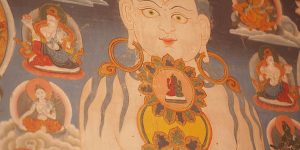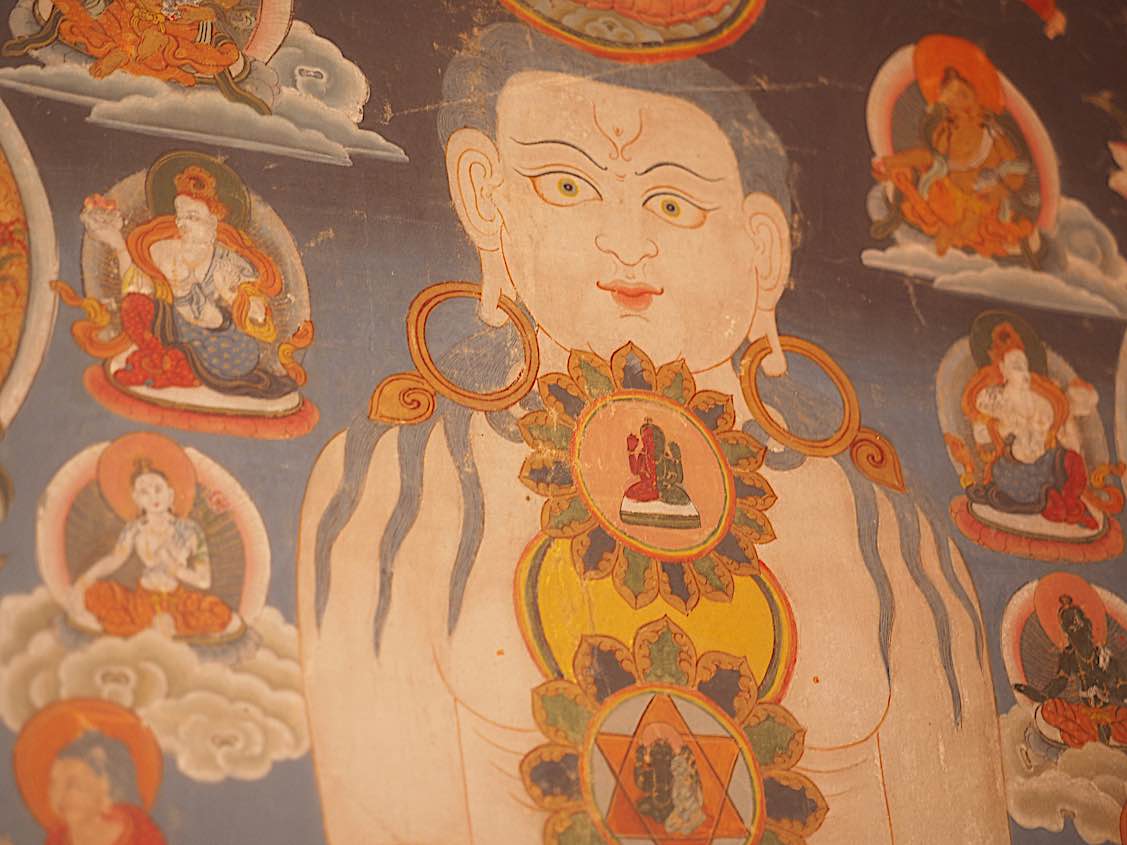What is Welcome to the householder Buddhist — the Ittha Sutta. Long life, beauty, happiness are “not obtained by reason of prayers or wishes”
Then Anathapindika the householder went to the Blessed One and, on arrival, having bowed down to him, sat to one side. As he was sitting there the Blessed One said to him: “These five things, householder, are welcome, agreeable, pleasant, and hard to obtain in the world. Which five?
“Long life is welcome, agreeable, pleasant, and hard to obtain in the world.
“Beauty is welcome, agreeable, pleasant, and hard to obtain in the world.
“Happiness is welcome, agreeable, pleasant, and hard to obtain in the world.
“Status is welcome, agreeable, pleasant, and hard to obtain in the world.
“Rebirth in heaven is welcome, agreeable, pleasant, and hard to obtain in the world.
“Now, I tell you, these five things are not to be obtained by reason of prayers or wishes. If they were to be obtained by reason of prayers or wishes, who here would lack them? It’s not fitting for the disciple of the noble ones who desires long life to pray for it or to delight in doing so. Instead, the disciple of the noble ones who desires long life should follow the path of practice leading to long life. In so doing, he will attain long life, either human or divine.


“It’s not fitting for the disciple of the noble ones who desires beauty to pray for it or to delight in doing so. Instead, the disciple of the noble ones who desires beauty should follow the path of practice leading to beauty. In so doing, he will attain beauty, either human or divine.
“It’s not fitting for the disciple of the noble ones who desires happiness to pray for it or to delight in doing so. Instead, the disciple of the noble ones who desires happiness should follow the path of practice leading to happiness. In so doing, he will attain happiness, either human or divine.
“It’s not fitting for the disciple of the noble ones who desires status to pray for it or to delight in doing so. Instead, the disciple of the noble ones who desires status should follow the path of practice leading to status. In so doing, he will attain status, either human or divine.
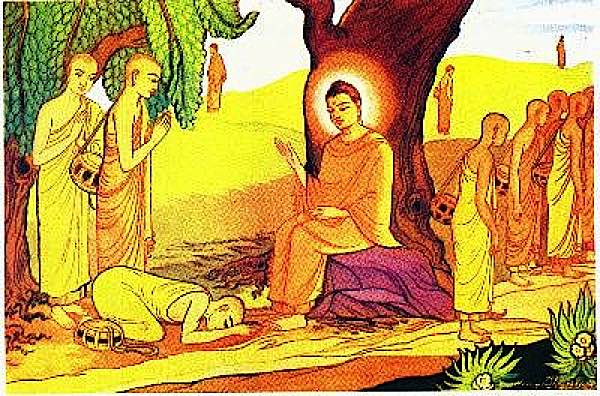
“It’s not fitting for the disciple of the noble ones who desires rebirth in heaven to pray for it or to delight in doing so. Instead, the disciple of the noble ones who desires rebirth in heaven should follow the path of practice leading to rebirth in heaven. In so doing, he will attain rebirth in heaven.”
Long life, beauty, status, honor, heaven, high birth: to those who delight in aspiring for these things in great measure, continuously, the wise praise heedfulness in making merit.
The wise person, heedful, acquires a two-fold welfare: welfare in this life and welfare in the next. By breaking through to his welfare he’s called prudent, wise.
Translated from the Pali by Thanissaro Bhikkhu
More articles by this author
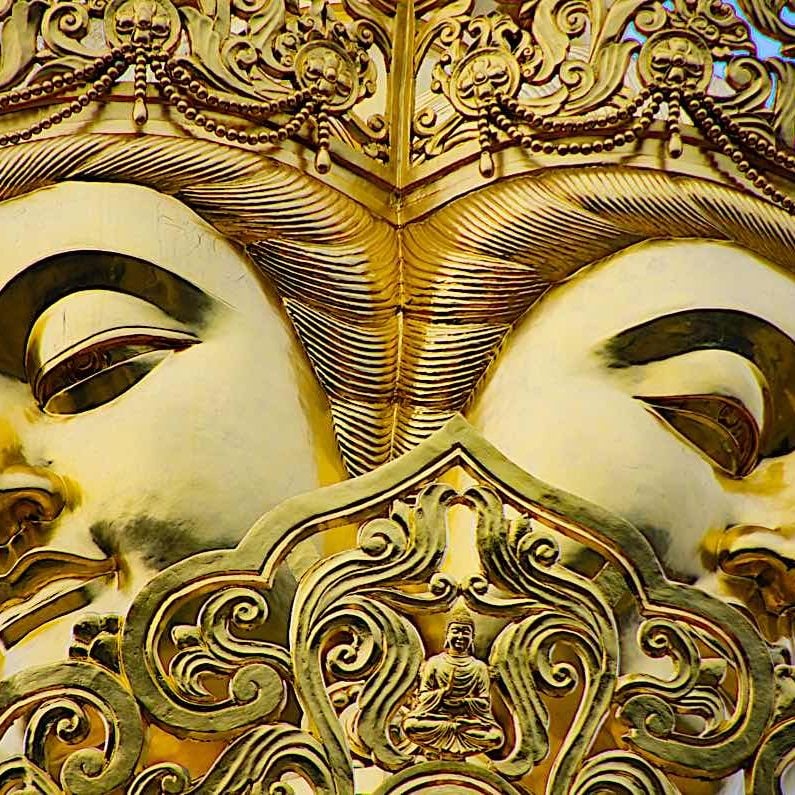
Samantabhadra’s The King of Prayers is the ultimate Buddhist practice how-to and itself a complete practice
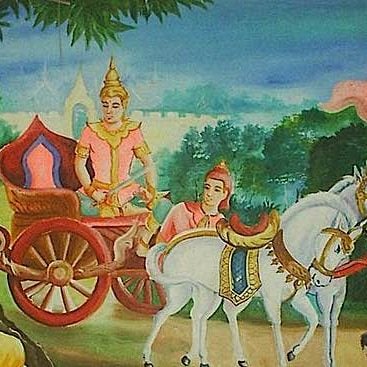
The Five Strengths and Powers or pañcabalā in Buddhism — the qualities conducive to Enlightenment: faith, energy, mindfulness, concentration and wisdom

Tara’s Great Dharani Supreme of all Mantras –with Music version– and the Sutra of Tara Who Protects from the Eight Fears: in Tara’s Own Words
Search
Latest Features
Please support the "Spread the Dharma" mission as one of our heroic Dharma Supporting Members, or with a one-time donation.
Please Help Support the “Spread the Dharma” Mission!

Be a part of the noble mission as a supporting member or a patron, or a volunteer contributor of content.
The power of Dharma to help sentient beings, in part, lies in ensuring access to Buddha’s precious Dharma — the mission of Buddha Weekly. We can’t do it without you!
A non-profit association since 2007, Buddha Weekly published many feature articles, videos, and, podcasts. Please consider supporting the mission to preserve and “Spread the Dharma." Your support as either a patron or a supporting member helps defray the high costs of producing quality Dharma content. Thank you! Learn more here, or become one of our super karma heroes on Patreon.
Lee Kane
Author | Buddha Weekly
Lee Kane is the editor of Buddha Weekly, since 2007. His main focuses as a writer are mindfulness techniques, meditation, Dharma and Sutra commentaries, Buddhist practices, international perspectives and traditions, Vajrayana, Mahayana, Zen. He also covers various events.
Lee also contributes as a writer to various other online magazines and blogs.




